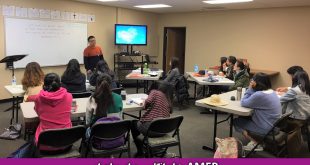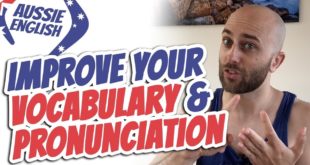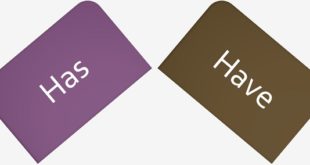Learn Australian English in this Walking With Pete episode of Aussie English where I talk about how to learn a language with podcasts!
How To Learn A Language With Podcasts
G’day guys. Welcome to this episode of the Aussie English.
Although, it’s a Walking With Pete episode. Oh, that’s a nice brisk night tonight.
Just out for a walk and I thought I would talk to you guys, I thought I would do one of these Walking With Pete episodes about how to best learn a language via podcasts, by using podcasts.
So, what is my advice? How would I go about learning a language via podcasts?
Obviously, if you’re listening to this podcast you are trying to learn English, for one.
And obviously, for two, for the second point you have a high level of English.
If you cannot understand me speaking as quickly as I’m speaking, using the language that I’m using, then you guys definitely have an advanced level in English.
So, firstly, pat on the back for that, because it’s not easy to get to any advanced level in any language that isn’t your native language.
So, you should definitely be proud of the fact that this is where you’re at, guys.
Good stuff. But the basic point I want to make, or the basic thing that I want to talk about, is podcasts.
What would I do with regards to learning a language if I was obviously at the upper intermediate, at the advanced level, in a language?
So, first and foremost obviously, I want to find a podcast that I enjoy listening to.
So, if you guys don’t enjoy listening to Aussie English I don’t know what you’re doing here.
You guys should definitely go and find a podcast that resonates with you, that you find riveting, that you find interesting, that you find fun to listen to, and continue to use that resource.
So, that’s the first thing. Try and find a podcast that you enjoy. It’s not hard work.
It’s something that you can do effortlessly, that you enjoy doing. That’s the first step.
And I’m sure you guys have probably experienced this in other areas in your own languages and in your own life where if you try and force yourself to read a book that you don’t like, to watch a TV show you don’t like, to watch a movie you don’t like, aside from the fact that it’s hard work you don’t absorb anywhere near as much from that thing than if you were to be watching a TV show or a movie or reading a book that you do enjoy.
So, it’s kind of a cumulative effect. It’s almost like the… in both directions too.
Both positive and negative. The more you enjoy something, the more of it you can consume, and thus the more you’re going to advance.
So, especially, in terms of language learning, especially, in terms of picking a podcast, if you enjoy the podcast and it’s not hard work you’ll obviously listen to more, and you’ll obviously be taking… you’ll be taking note, you’ll be focused in, you’ll be concentrating.
You’ll be a lot more attentive to what I’m saying in the podcast, or to what anyone is saying in any other podcast.
1. Find something you enjoy
So that’s the first one. Be interested in the resources that you’re using.
So, find a resource that you enjoy, that is easy work, because then going through it and utilising it, consuming it, using it, is going to be effortless.
You’ll just keep doing it day in day out, and you’ll keep building, you’ll keep gaining your knowledge, you’ll keep improving a lot faster than if you were using something that was really difficult, that was hard work, that you didn’t enjoy.
So, that was… that’s number one. Point number one. Find something you enjoy.
2. Find a podcast at your level (or just above)
Point number two. Match that thing to your level. This is one that is kind of difficult to do at times and it takes a bit of practice to get used to it and a bit of use. You got to go out there and try these things. Use these things.
And see… work out what your level is. It can’t… It’s not always intuitive when you first start.
You don’t necessarily know where you stand, and sometimes we’re not the best judges of our expertise, at least, or our advancement in these sorts of areas.
So, point number two is trying to find something at your level.
And in fact beyond that, you should be trying to find something above your level, but not so far out of… away from your level that it’s too difficult.
So, the thing shouldn’t be too easy and it shouldn’t be moderately easy.
So, I imagine it… you could find a resource that was at your exact level in English.
You want something that is ahead of you, but enough… ahead of you enough that it’s going to keep you moving forward.
So, I guess a good analogy for this is the donkey or the mule with the carrot in front of the donkey’s head.
Right? You probably know that analogy where in order to get the cart to move forward the farmer or the man who’s on the cart with the donkey in front of him pulling the cart, he has a carrot on a stick.
You know suspended from a stick on a string.
This carrot’s sitting there like a fishing rod with the hook.
Instead of a hook that’s got a carrot.
And so, he uses that to put it in front of a donkey to get the donkey to move forward.
So, if it goes too far in front of the donkey, the donkey is going to say, “Well, screw this. That’s too hard. I’m not going to bother with that. It’s way too far out of my reach. Achieving this goal is too far. It’s too hard. It’s too difficult. So, I’m not even going to try.”
That’s what happens with the language learning when you pick a resource, whatever that resource is, that’s too difficult. If it’s too hard, it’s really too easy to say, “I can’t do this.”
And also, it’s obviously going to chip away at your motivation.
If it’s a lot more difficult than the level that you’re at, so it’s not paired well with where you are at, whether or not you know it it’s going to affect your motivation, I’d imagine.
Or at least it’s really really going to test your discipline to see whether or not you can get through it.
The other side of it is that if the carrots too close the donkey eats it doesn’t move.
So, in that analogy if the carrot’s too close to the donkey and he eats it that’s the same as you using resources that are too easy.
You’re absorbing them like crazy, but it’s not pushing you forward.
You’re not advancing as a result of absorbing those resources, of using those resources.
So, this would be like me trying to advance my English by watching Play School, which is a TV show for children here in Australia.
You know where they’ll do, “One and two is three and three and four is seven.”
You know they’ll have those sorts of things on TV. My language… my English language is probably not going to take leaps and bounds, you know, it’s not going to move forward, I’m not going to advance quickly if the resource that I’m trying to use in order to achieve that is really not accurately set.
So, it’s sitting way too far below. It’s too easy or it’s way too far above it’s too hard.
So, point number two is find something that is at the right difficulty level.
And this difficulty level pretty much goes for anything that you’re trying to improve in in life needs to be ahead of you.
It should be hard, but it shouldn’t be too hard that you can… you want to give up.
So that’s point number two.
3. Use a podcast with transcripts
Point number three, with regards to language learning and podcasts, is getting access to transcripts.
Now why is this important?
It’s one thing to listen to a podcast and understand what’s going on.
And I think even for native speakers who are listening to a podcast we’re not absorbing all the words all the time.
So, we actually still miss quite a bit of what’s said.
So, I think this is even more the case if English isn’t your first language it’s your second language, you’re going to miss a lot of the nuances, a lot of the smaller words, as well as some of the bigger words that you don’t know, if you don’t have access to a transcript.
So, a transcript is the written words, as what is said.
So, it’s the… it’s literally the words on a page of what’s been said.
The podcast, the resource, has been transcribed.
And so you’ve written down the words that are being said.
And this… It’s so important to have access to a transcript.
And this is part of the reason in Aussie English that with all of the podcast episodes I always try and make sure that there is a free transcript even if you’re not a member, because I still know how important it is, and how much I still want you guys to have access to that resource.
Some of them I obviously don’t.
The longer ones that are over an hour long, ’cause it’s just a lot of work.
But for these sorts of ones there’s always a transcript.
Transcripts are really good because they’re filters.
You can’t hide from what you don’t know, from what you don’t understand, if you’re reading through a transcript.
It’s so much more apparent, if you have the words in front of you when you’re listening to the podcast, as to which words you would have otherwise missed.
So, the really small words that might get absorbed or disappear in contractions that you won’t necessarily misunderstand what’s being said, but you didn’t gain 100 percent understanding of what was going on grammatically or at the level of the language, and then therefore be able to go away and implement it when you speak, and when you write, and when you listen, you know, to other people who end up making the same kinds of sentences.
So, it’s really important to be able to see those words and be able to have two things going on at the same time.
Listening and reading.
And then also, obviously, it’s really good because of all the words that you’re not going to understand, of all the words that you are going to find or hear for the very first time.
And this is so easy for advanced, high… advanced intermediates to advanced learners of a language to skip over.
It’s not the end of the world if every now and then a big word or a noun some kind of adjective, one of those rare words gets used, and we don’t understand it.
We can often piece together what’s going on.
We can often make out the sense, the context.
We know what’s being said more or less. And so, it’s not the end of the world.
But, you’re not going to learn what that word was, that you missed 30 seconds ago on a podcast was, unless you have access to a transcript and you can read while you listen.
Go through. Note all the words you don’t understand.
Note all the expressions that you might not understand.
And then look them up. Learn them. Write them on the transcript.
And then listen to the episode again. So, that’s point number three.
Find a podcast that has a transcript. So, that you can read and you can listen.
And a lot less gets by, a lot less goes through, and you don’t absorb it from the podcast episode.
And this is something I always noticed I do whenever I listen to Français Authentique or any of these other podcasts for Portuguese or Spanish.
If I don’t have a transcript, I may understand what’s going on, but I miss a lot of the words.
4. Use the transcripts as a filter to find new vocab
Point number four is to use the transcripts as a filter.
So, use them as a filter. Almost a reverse filter. What do I mean by this?
A filter is something that used, well, to sift through something, to filter it…
This is one of those hard verbs for me to define.
But, in the sense of using a transcript as a filter, what I mean is that you’re using it to filter all the words that you didn’t know out of the podcast.
So, you’re using the transcript to find those words, to take note of those words, to look those words up, find out what they mean.
Write them then on the transcript, and then listen, listen, listen, repeat, repeat, repeat that podcast multiple times now that you have looked up all of that vocab and understand that vocab, until you can hear all of those words now and understand what they are when you listen.
I think this is one of the biggest things with learning a language with podcasts, aside from the points already mentioned, is having that transcript and are using it to build your vocabulary.
Using it to filter out all of those words that you otherwise didn’t know prior to that podcast, that you didn’t know before that podcast, and learning them.
And this is going to be invaluable if you’re trying to advance quickly with learning a language.
And obviously, by using a podcast, by doing it on your own.
So, you don’t have other English speakers around. And it can be transferred to any resource.
If you’re watching a movie, if you’re watching a TV show, if you’re listening to an audio book, if you’re consuming anything in English as long as you get access to the written words as well as the audio that is going to advance you a lot quicker than if you had only one or the other.
So, I think those are the main four points. Find a podcast that you enjoy, number one.
Number two, make sure it is at the right level.
And it should be just a little bit in front of you.
You should position the carrot in front of the donkey that’s pulling the cart at the right distance to get that donkey to move forward.
So, it needs to be a little bit difficult so that you are constantly then running into new vocab, new things.
Number three is finding a podcast with a transcript.
And this ties in with number two and why it’s so important to have one that is just ahead of you, because then you’re going to have access to a lot more new vocabulary, and you’re going to be…
You’re going to be filling in your vocab holes.
So, you’re going to be finding all of these words that you don’t understand, all of these aspects of grammar that you might not commonly hear or use.
And then you’re going to add them to your repertoire.
And then, obviously, Number four it’s using it as a filter.
It’s taking note of all of these things that you didn’t know and learning them.
Putting in active effort to look them up, to learn them, write them down on the transcript, and then listening to that podcast episode again, again, again.
Once… you’ll find too, you’re going to find that once you’ve looked these words up, and once you know what they mean, your memory is going to be triggered really easily and really quickly when you hear them in that podcast episode.
So, you don’t need to necessarily learn them by heart, but just having looked them up once or twice, and reading over the transcript a few times with the episode playing at the same time, and then after that only listening to the episode, you’re going to notice you’ll remember this vocab, and it’s going to stick with you. It’s going to stay with you and you’re going to advance incredibly quickly.
So, those are the four points that I think you should take note of.
When picking a podcast make sure that it’s interesting, it’s just ahead of your level, there’s a transcript, and you use that transcript to find your holes in vocabulary, to find the things you don’t already know, and then to learn them.
So, I hope that helps guys. I hope you enjoy this episode.
I hope that Aussie English’s being a useful resource for you guys.
I hope that the transcripts are really useful.
And I hope that if you’re not already using them like this that you start doing it tomorrow, and that you start noticing gains, that you start noticing improvements really quickly.
So, with that I’ll leave you to it guys.
Someone doing a burnout in the background there on Lygon street off in the distance.
I hope you have a good day or a good night, a good morning, and I’ll see you later.
Peace out guys.
 ایرانیان استرالیا Australia Iran بزرگترین جامعه ایرانیان ساکن استرالیا Australia Iran
ایرانیان استرالیا Australia Iran بزرگترین جامعه ایرانیان ساکن استرالیا Australia Iran










